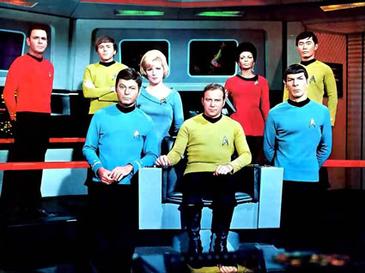
Okay, so part of me wants to "keep my powder dry" because we've got a similar discussion coming up on September 10th at our place. But here it is:
I am completely, totally, over-the-moon impressed with "Avatar: The Last Airbender" as a series, especially when it comes to the lessons it's teaching my kids. Rather than a story of "Good Triumphs Over Evil," it's a story about reconciliation, balance, and the difficult path to peace.
Now I have to tell you: I am a child of the 80's. And as such, many of the dominant narratives--the cartoons I grew up watching--were pretty black and white, good-vs.-evil stories. G.I. Joe. Transformers. He-Man. Thundercats. Voltron. Teenage Mutant Ninja Turtles. All of these stories shaped who I was and how I viewed the world. And it made things pretty simple. I mean, if you're a three year old, filled with all the spastic, explosive energy that seems somewhat inherent to that demographic, that is going to sometimes manifest itself in a few excess kicks and punches. Don't ask me why, but now as the parent of a 3-year-old boy, I can attest that's just how it goes. And in your fantastical, action-packed world of make believe, who better to bear the brunt of your aggression than a two-dimensional ultra-villain, with zero redeeming qualities, bent on world domination, who literally has a human skull for a face?

Which is what blew me away about "Avatar: The Last Airbender." Here you have an action-packed martial arts epic, taking place in a world plagued by a hundred years of war. It's got everything: Magic. flying animals. Teen romance. And to top it off, balancing off the kind, good-humored and supremely powerful air-bending protagonist, Avatar Aang, we've got someone who appears to have the makings of a classic cartoon villain: the ambitious, driven, and totally bad-to-the-bone fire bender, Prince Zuko.
This guy's mission in life is to end Aang's. World domination. Fire Nation, ruling the globe, Zuko in the Emperor's chair, yadda yadda yadda. Typical villain stuff.
But if you've watched the series, you know that Zuko's story doesn't end there. Through some pretty intense soul-searching, many failures, and a chance to really dig deep into his own motives for wanting to please his father, Zuko repents. He joins the "good guys." He begins to realize that Aang's goal--to bring balance to all four elements in this magical world, Earth, Fire, Air and Water--is the only goal worth pursuing. And so, without sacrificing a bit of action, intensity, and awesome martial arts battles, you suddenly have an epic that's no longer about total victory over another, but about reconciliation and balance.
I love that there are action series like this available for my kids, and they're much more common than when I was small. I love that through the magic of this fictional world, they can learn to empathize with others rather than writing them off as evil bullies. And I also love that it provides an interesting worldview, which seems to be based in Taoism: putting opposite elements in balance, rather than seeking an all-out victory of one force over another.
I'm worried that the Christian faith in which I'm raising my kids, is fundamentally misunderstood by our culture as a "good versus evil" story. Satan is the "bad guy" God is the "good guy" (and I use the non-gender
neutral terms here, again, because I'm laying out the popular view of our faith). Even in our baptismal liturgy, which goes back almost to the time of the apostles themselves, we ask a child's parents to "renounce the devil, and all the forces that defy God". The whole thing feels like this black and white, us-vs.-them story, with Christians on God's side, the "good" side, and with Satan and all the forces that defy God on the "bad" side: the "dark" side...
But when we baptize our kids, we also promise to place in their hands the Holy Scriptures. And when they open those scriptures throughout their lives, and read what's actually in there, they're going to realize something pretty quick: The most consistent "bad guy" is not some cosmic "Devil" or "Satan". In fact, Satan is rarely even mentioned in the Old Testament, and when he is, he's often depicted as God's prosecuting attorney; the one responsible for testing the faith of humankind (and it could be read that he's even acting on God's behalf by "tempting" Jesus in the wilderness, but that's another story). No, the most consistent, predictable villainous "bad guy" of scripture is...humanity. We're our own worst enemy.
Jesus had a number of pet peeves. But I'd say the biggest was when people tried to play the role of God by sorting this world out into "good guys" and "bad guys", putting themselves on the "good" side. If we're reading the Bible casting ourselves in any other role than of "villain", then I guarantee you we'll be missing the point, and our reading of the Bible is going to do both us and the world more harm than good. As a bit of a "villain" himself, St. Paul had this point pretty much spot on.
If you haven't yet, I encourage you to watch a few episodes of "Avatar", and think about what the next generation of kids might grow up to be, if they could escape the idea of "good guys" and "bad guys."








